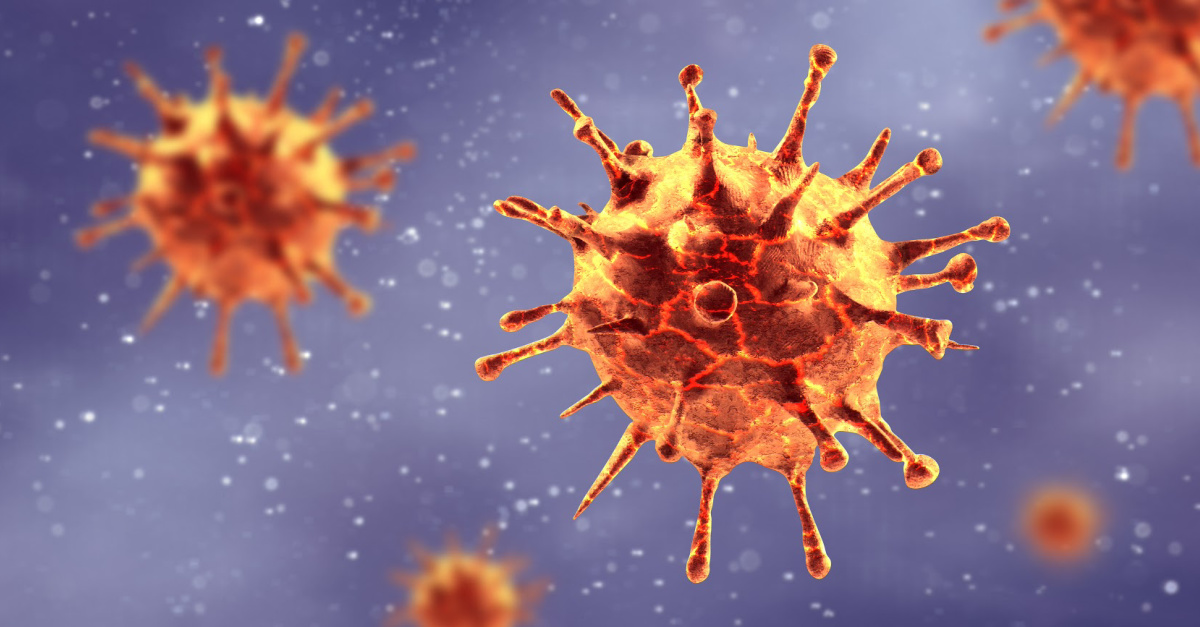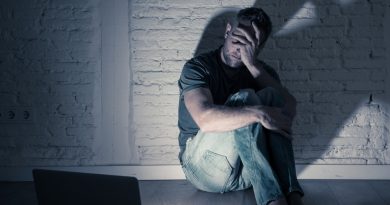4 Truths I Learned after Testing Positive for COVID-19
[ad_1]
It couldn’t happen to me.
I rarely get sick, besides an occasional cold or case of laryngitis. I’ve never had the flu. Plus, I’m naturally good at social distancing; I’m not a fan of people being inside my invisible bubble–not only during a pandemic, but pretty much any time. I’m a strict adherent to the church-approved, one-armed side hug: bodies largely stay apart and faces aren’t close to each other.
My wife and I have been taking COVID-19 very seriously, to the point of it sparking arguments with some of the people I care the most about. My wife has a suppressed immune system, so we haven’t been messing around with it. We wore our masks from early stages of the pandemic, when masks were hard to come by. We stayed out of stores, except when it was absolutely necessary. We washed our hands religiously. To this day, we haven’t eaten inside a restaurant in more than six months.
But, COVID-19 still came for my household. My wife felt its effects first. While we were on vacation with family, she began to feel like she was getting a cold or a sinus infection. Then came the telltale sign: a loss of taste and smell. She knew something was wrong. When we returned home, she learned that multiple coworkers had tested positive and she had likely been exposed. By that time, she was sick and several other family members were exposed, as well as myself and presumably our kids.
COVID-19 found us, just like it has found more the 6 million other Americans across the nation. I’m thankful, as I sit here today, to be on the other side and doing well. Our symptoms – which ranged from inconvenient and uncomfortable to a little more serious – were relentless, lasting well beyond two weeks. Yet, we count ourselves as fortunate compared to the suffering of so many other COVID-19 patients. We never needed to seek emergency care for difficulty breathing; for us, this potentially deadly disease wasn’t as bad as we know it could’ve been.
From a medical perspective, what seems to make COVID-19 so difficult to track and contain is the fact that it reacts different in every person. The symptoms we all felt were unique and different from each other. As for my personal experience, it was largely a very severe sore throat, some chest pressure and fatigue. My wife had sinus symptoms, body aches, fatigue and loss of taste and smell.
But, perhaps the hardest part of COVID-19 isn’t physical at all. As our family pressed on, living apart under the same roof for more than two weeks, there is the emotional toll this disease takes. Telling your kids both of their parents have COVID-19 while not being able to hug and comfort them is excruciating.
But, just like every moment of adversity we face, whether it be personal or as a society, when you come out on the other side, you realize how much you learn about yourself, your life, and in my case, my faith. Here are a few truths I rediscovered while being on this journey.

Photo Credit: ©Getty Images/Panorama Images
1. Everything We Put Our Trust in Is Fragile
Health is something so many of us take for granted. We are all just one doctor’s visit away from devastation. I’ve seen it in my own family, and yet still have found myself forgetting how blessed I am. Each breath is a gift, not a right. In a matter of moments, my wife and I go from healthy to sick and in isolation. We were left with the unknown. What is COVID-19 going to eventually do to our bodies – bodies that we rely on to provide and care for our children?
It reminds us that everything we tend to rest in that isn’t Christ Himself, is a waste of our time. “Some trust in chariots and some in horses, but we trust in the name of the Lord our God” (Psalm 20:7). Without even realizing it, we put so much of our hope and faith in our health, our finances, our human relationships and other things of this world. But, God – the giver of all of these things – is who deserves our attention. Anytime we experience suffering in our lives, it should draw our attention to the One who never fails us and walks us through it.
2. Bad Things Happen to All People
God, why did you let this happen?
Inevitably, if something difficult happens, it’s the first thing so many of us pray. Whether it be a failed relationship, a job loss, or a diagnosis. COVID-19 is no different. Before last month, my prayer was more corporate, asking God what He wants us as a society or as a Church to see … why are we going through this and what can we learn from it?
Over and over again, I’ve been reminded of this truth: bad things happen to all people. We know that we live in a broken world – a world where the existence of sin and freewill causes vast amounts of suffering. In the greatest sermon ever preached, Jesus tells us that the Father “makes his sun rise on the evil and on the good, and sends rain on the just and on the unjust” (Matthew 5:45).
Is it any comfort knowing that it’s raining on others just like, or even harder, that it is raining on you? It’s heartbreaking to know all of the pain other people are experiencing, even while things aren’t so great in your own house. But, I feel God constantly pushing me in the direction of thinking about others instead of focusing on myself. After all, His ultimate goal is to produce fruit in me and mold me into the likeness of Christ.
3. Naturally, I Tend to Exaggerate My Hopelessness
It’s usually not as bad as we think. I know that’s not always the case; sometimes it’s worse. But, when I look back at my life through all of the difficult seasons, I can see now how God was working through those experiences. Things that seemed unbearable were really the necessary tools God used to create something even better: a testimony.
One of my favorite Bible stories is about Naomi and Ruth. Poor Naomi had gone through a lot. Her husband and her two sons had died. She was left with her two daughters-in-law, Orpah and Ruth. If you are familiar with the story, she urges them both to leave her, for their own sake, and live their lives. Orpah leaves and Ruth stays.
Naomi was so depressed that she wanted to change her name to Mara, which means “bitter.” “I went away full, and the Lord has brought me back empty. Why call me Naomi, when the Lord has testified against me and the Almighty has brought calamity upon me?” (Ruth 1:21). Little did she know, God was working and He had a plan to bring her a new hope and a new family–one that would become lineage of King David and eventually Jesus.
Jotted in the margins of my Bible in the book of Ruth are these words from John Piper: “When you think God is farthest from you, or has even turned against you, the truth is He is laying the foundation stones of greater happiness in your life.”
What suffering is God using today that may be the foundation stones in your story? Instead of exaggerating my hopelessness, I need to see that God is working and moving, shaping a future story He can and will use for His glory.
4. When Things around Me Are Bad, I Can Rely on the Fact that God Is Good
The go-to passage about suffering in the Bible is the book of Job. I can’t imagine what he went through: he lost it all…his health, his wealth and his family. Yet, over and over, Job refused to curse God.
By comparison, when we experience a little bit of hardship, it’s so easy for us to question God. Why would he allow all of this to happen? I don’t have sufficient answers for difficult theological questions like that, but I do know this: God is good. I’ve experienced that truth over and over again.
Going through difficult circumstances, even COVID-19, is the reminder that regardless of what we face, we can choose to focus on the Comforter, not the discomfort. “I have told you these things, so that in me you may have peace. In this world you will have trouble. But take heart! I have overcome the world” (John 6:33).
Photo Credit: ©GettyImages/globalmoments
[ad_2]
Source link


